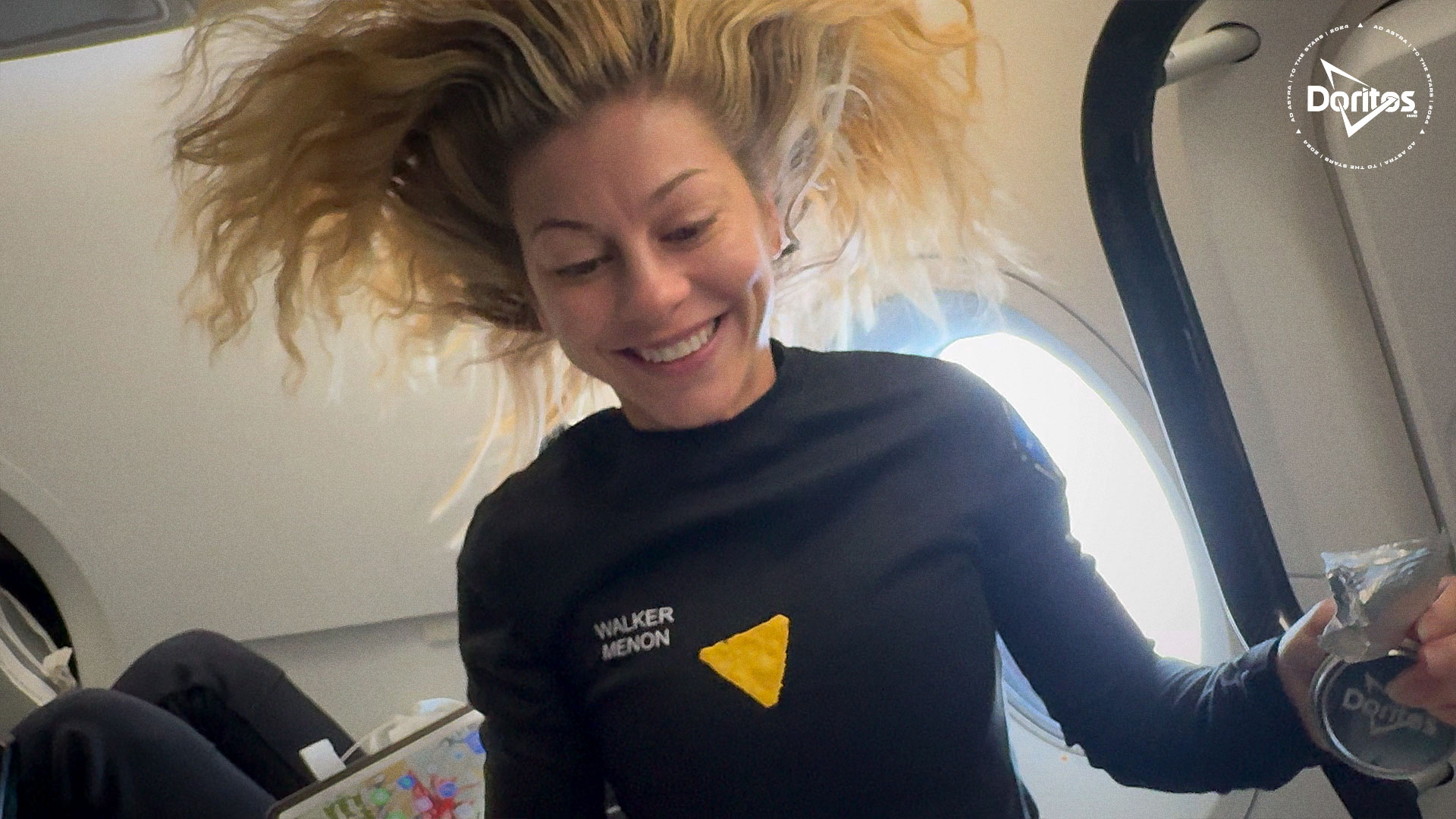
It is not a sound often heard in Earth orbit, but in the newly released footage of snack and space history being made, it is clearly there.
*Crunch.*
Doritos on Monday (Oct. 21) is releasing its first ad filmed in space, and it is filled with the sound of astronauts "crunching" down on the brand's first-ever chips to leave the planet.
As exclusively first shared by collectSPACE.com, the online video spot shows Polaris Dawn crewmates Jared Isaacman, Scott "Kidd" Poteet, Sarah Gillis and Anna Menon each snacking on one of the "Zero Gravity Cool Ranch" Doritos chips as they floated weightless aboard a SpaceX Dragon capsule last month.
The limited edition, safe-for-space version of Doritos was launched on the recent mission as part of an effort to raise funds for pediatric cancer research being conducted at St. Jude's Children's Hospital.
"Hey, thanks Doritos! Thanks for supporting St. Jude's. We appreciate this snack," Isaacman said, as captured in a behind-the-scenes clip.
Related: SpaceX Polaris Dawn astronauts perform historic 1st private spacewalk in orbit (video)
Step 14a: Have a snack
The four private astronauts filmed the commercial just before embarking on the first spacewalk conducted by a non-government crew.
"We had already done our pre-breathe — really reduced our cabin pressure and increased the oxygen concentration to ready our bodies — for the spacewalk and then, as one of our last meals beforehand, we got to enjoy the Doritos," Menon, Polaris Dawn mission specialist and medical officer, said in an interview with collectSPACE.
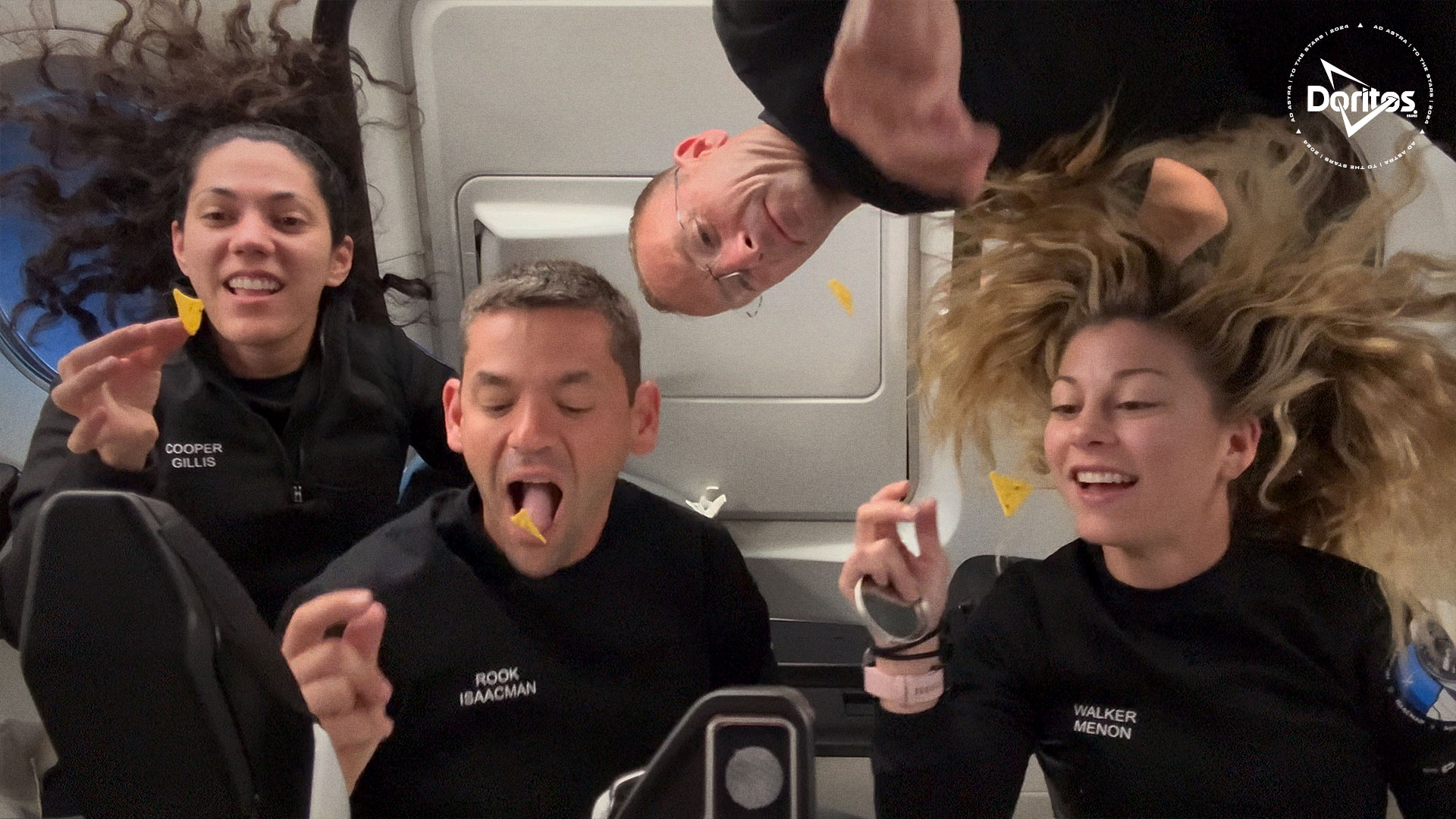
Menon, along with her crewmates, added the Doritos distinction to their list of firsts achieved on the five-day mission, including the EVA (extravehicular activity or spacewalk) and breaking an orbital distance record set in 1966. Menon also read from her book, "Kisses from Space," while in orbit, sharing a personal project she created to stay connected with her children during the mission.
"It was awesome!" said Menon, describing the Doritos, which were individually wrapped and packaged in individual tins. "They held up incredibly well."
Off the no-fly list
For the first 60 years of human spaceflight, Doritos and most other types of chips were on the no-fly list because the crumbs they create posed a risk of floating away in the microgravity environment of space. These flakes could then become hazards to the crew, being accidentally inhaled or getting into their eyes, or lodging themselves behind electrical panels and interfering with the operation of the spacecraft's systems.
There were some exceptions, but the workarounds sometimes altered the chips' taste or made the snacks more time consuming to eat. The easiest solution was to leave them on Earth and pick alternate, less crumb-prone foods.
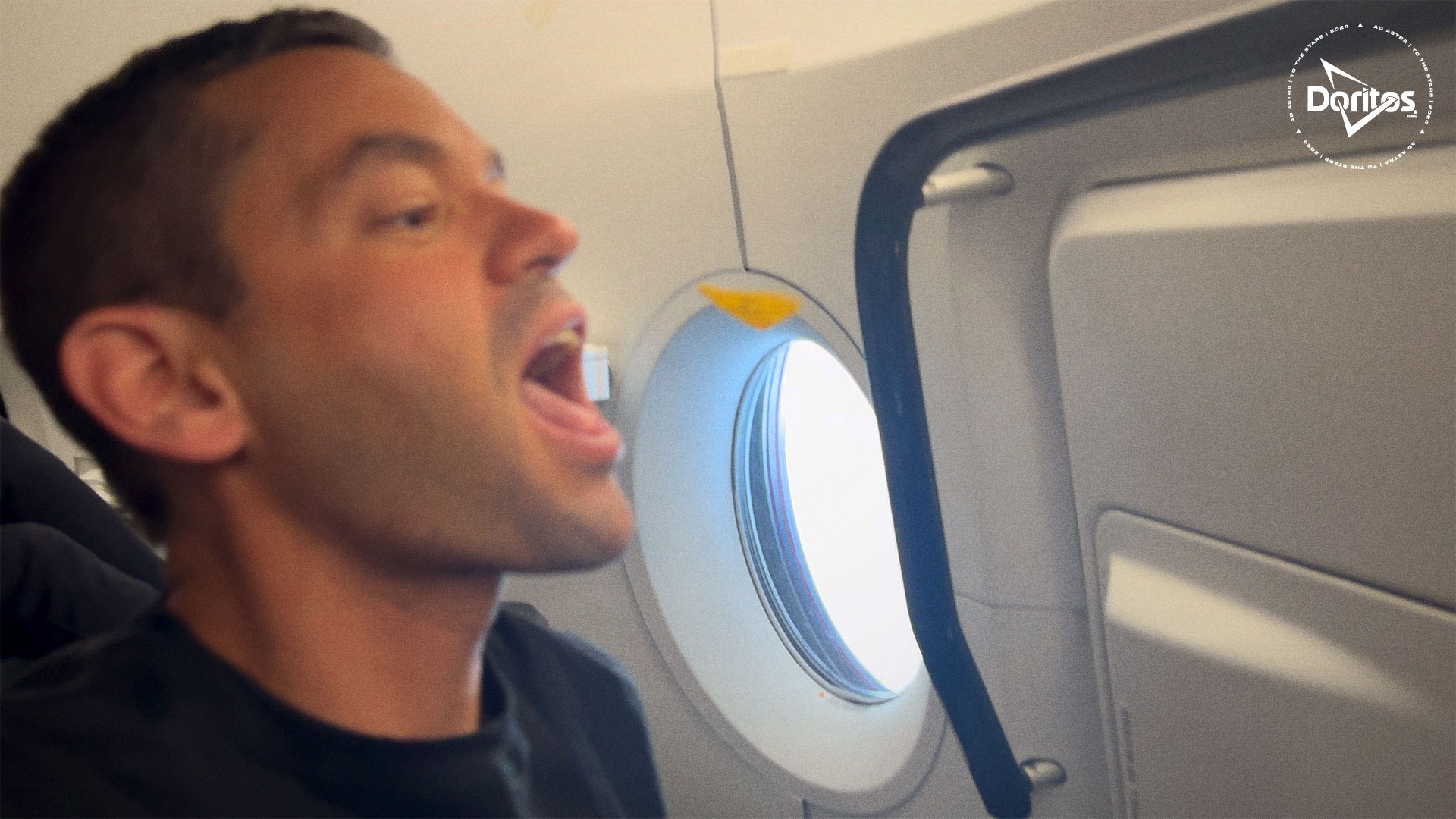
"They did do some really creative things to package them for space," said Menon, recounting how Frito-Lay (a subsidiary of PepsiCo) made sure the chips would arrive in orbit intact. "They flew individual canisters with several chips inside each to keep them protected, because there are a lot of G [gravity] loads, vibrations, etc. — a really dynamic environment that everything that is in the vehicle has to go through — to get to outer space. So they had some protection around them to keep them safe."
The chips were of the Doritos "Minis" size, which the brand markets on Earth (in larger cardboard tubes) as "perfect for on-the-go snacking" but turned out to be also good for eating in space because they are bite-size.
Related: Food in space: What do astronauts eat?
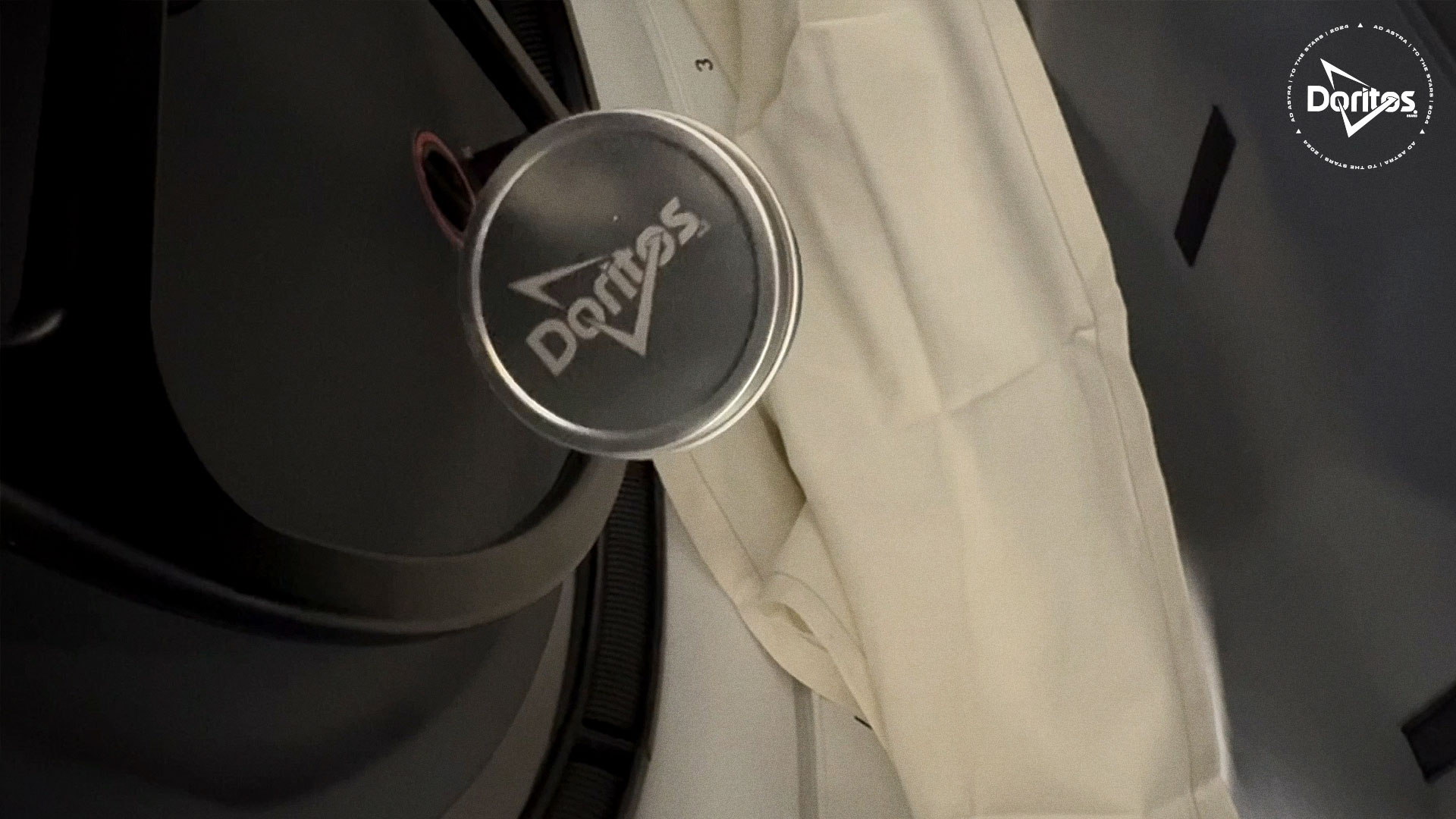
The food scientists at Frito-Lay also made one other change: they used oil-based flavoring in place of "Doritos dust."
"They were very, very clean," said Menon, confirming that she and her crewmates didn't have to lick or wipe off their fingers after their snack.
Taste-tested for a good cause
Frito-Lay based the new space chips on its herb-flavored Doritos, rather than the "original" nacho cheese.
"They did taste like Doritos, but they also had a really cool flavor. It was 'Zero Gravity Cool Ranch,'" said Menon. "It was super neat to taste that unique flavor that was made for space, but they were also very reminiscent of Doritos on Earth, so it was nice to have that taste of home up there."
Before the Polaris Dawn launch, Frito-Lay held a promotion in which 200 Doritos fans could receive the Zero Gravity Cool Ranch chips in return for donating $200 each to St. Jude Children's Research Center, the space crew's chosen charity. The chips were described as being the same as those flown on the mission, only packaged differently. (Fans could also receive replica tins for a $300 donation or tins actually flown in space for $1,000 each.)
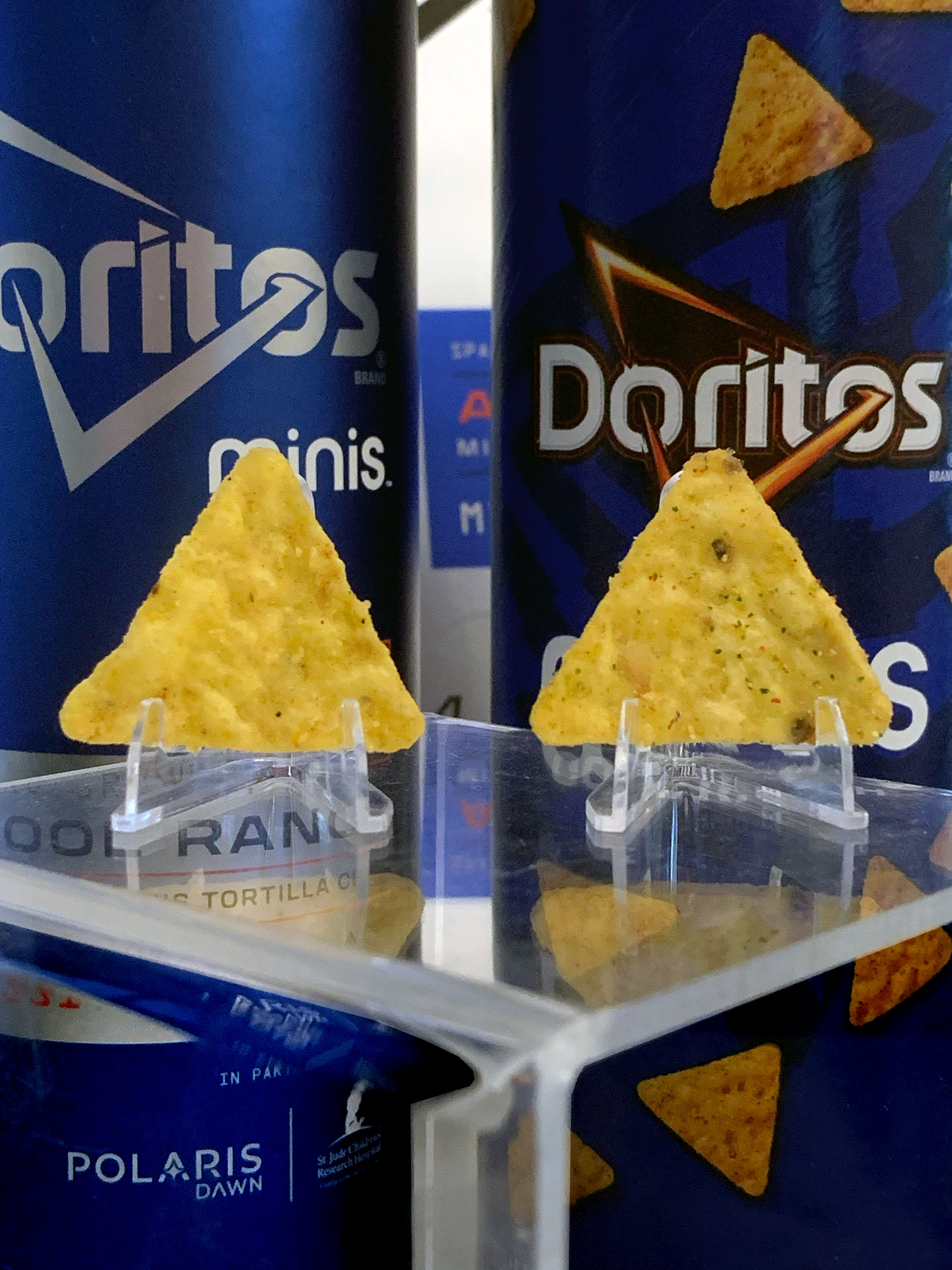
A sample tube sent to collectSPACE allowed for a taste test between the ground-based Doritos Cool Ranch Minis and Zero Gravity Cool Ranch chips. The differences in flavor were subtle, with the space chips having a slightly more muted, baked-in spice taste as compared to the noticeably powdered Earth Minis. Otherwise, they were nearly identical in appearance, size, texture and crunch.
According to St. Jude's website, the Doritos promotion set out to raise $585,000, including an initial donation by Frito-Lay of $500,000.
"As a big picture, we set out to tackle ambitious technical objectives for the future of human spaceflight and to advance human spaceflight. But simultaneously, we believe it's extremely important to address some of the challenges that we face here on Earth today. One of the ways that we did that is through raising funds and awareness for St Jude Children's Research Hospital and Doritos was a direct contributor to that goal. So we're just incredibly thankful for everything they did towards that," said Menon.
Click through to collectSPACE for a behind-the-scenes look at the filming of the Doritos in space ad.
Follow collectSPACE.com on Facebook and on X at @collectSPACE. Copyright 2024 collectSPACE.com. All rights reserved.







